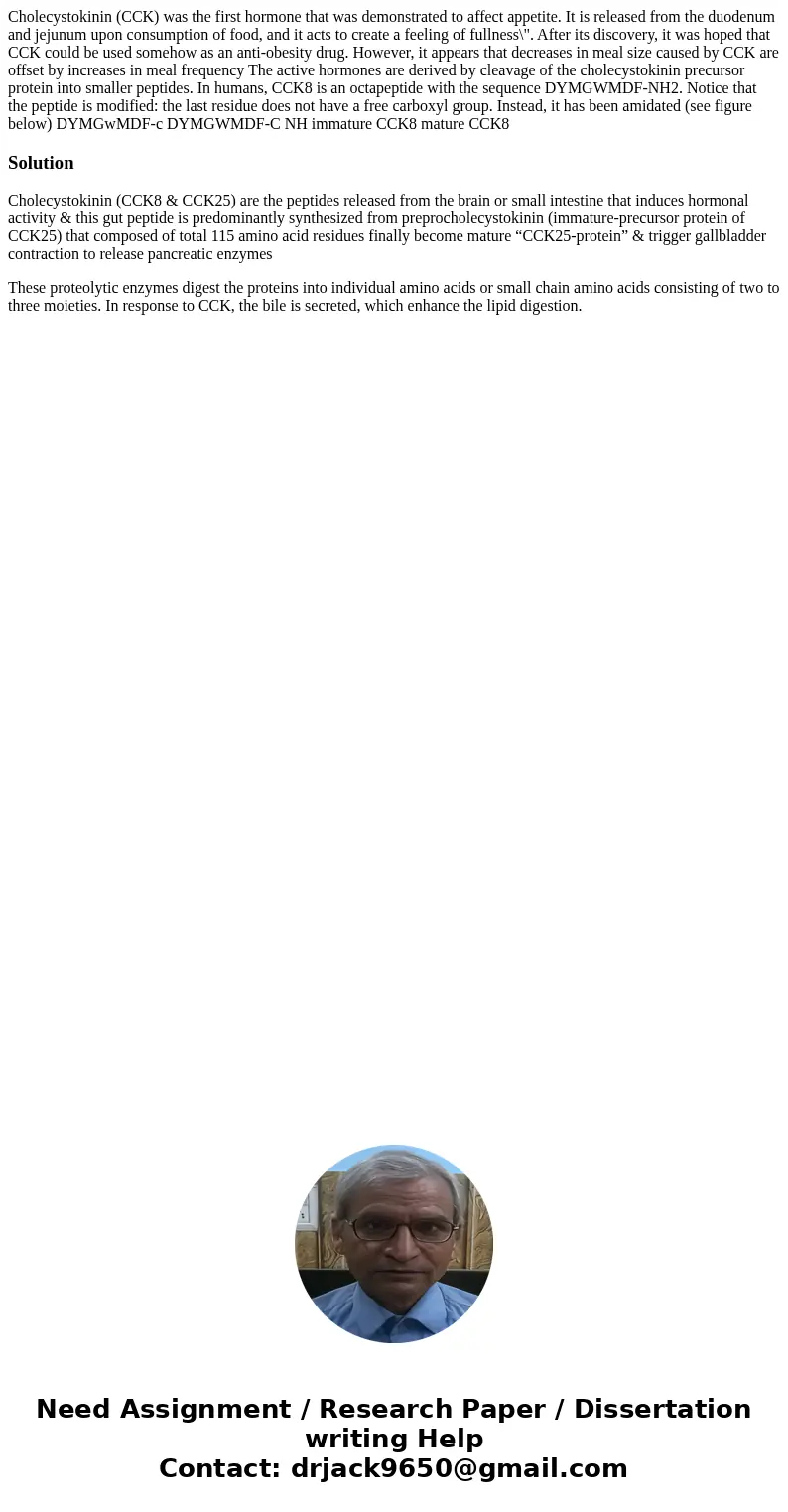Cholecystokinin CCK was the first hormone that was demonstra
Cholecystokinin (CCK) was the first hormone that was demonstrated to affect appetite. It is released from the duodenum and jejunum upon consumption of food, and it acts to create a feeling of fullness\". After its discovery, it was hoped that CCK could be used somehow as an anti-obesity drug. However, it appears that decreases in meal size caused by CCK are offset by increases in meal frequency The active hormones are derived by cleavage of the cholecystokinin precursor protein into smaller peptides. In humans, CCK8 is an octapeptide with the sequence DYMGWMDF-NH2. Notice that the peptide is modified: the last residue does not have a free carboxyl group. Instead, it has been amidated (see figure below) DYMGwMDF-c DYMGWMDF-C NH immature CCK8 mature CCK8 
Solution
Cholecystokinin (CCK8 & CCK25) are the peptides released from the brain or small intestine that induces hormonal activity & this gut peptide is predominantly synthesized from preprocholecystokinin (immature-precursor protein of CCK25) that composed of total 115 amino acid residues finally become mature “CCK25-protein” & trigger gallbladder contraction to release pancreatic enzymes
These proteolytic enzymes digest the proteins into individual amino acids or small chain amino acids consisting of two to three moieties. In response to CCK, the bile is secreted, which enhance the lipid digestion.

 Homework Sourse
Homework Sourse